STUDYING PSYCHOLOGY, COUNSELLING AND THERAPIES

Faculty of Creative Arts, Technologies & Science
School of Psychology



Faculty of Creative Arts, Technologies & Science
School of Psychology

Welcome from the Head of Psychology, Professor Ann Weatherall
A very warm welcome to the School of Psychology at the University of Bedfordshire.
You have made an excellent decision to study psychology, and to learn how to make a positive difference in people’s lives and your communities. The skills that you will acquire include critical thinking, excellent oral and written communication and data analysis, all of which are attractive to employers.
I am proud to lead a diverse and talented team of academics to deliver exceptional teaching and learning, high levels of community engagement, applied research and life-changing practice. You will benefit from our commitment to providing and supporting widening access to higher education.
I encourage you to make good use of all the opportunities we offer and become an active member of our vibrant School culture. For example, drop into our study hub, have a cuppa with other students in The Metro café or come to one of our research seminars to hear what is at the cutting edge of psychology.
I look forward to meeting you during Welcome Week.
Ann Weatherall Head of Psychology
Student Information Desk (SiD) beds.ac.uk/sid sid@beds.ac.uk
Student Support beds.ac.uk/studentsupport
BedsSU (Students’ Union) bedssu.co.uk
help@bedssu.co.uk
Welcome from Course Coordinator, Dr Sarah Goldsworthy

Hello and welcome to the BSc Psychology, Counselling and Therapies course. You have made an inspired choice!
My name is Sarah and I will be coordinating your course over the next three years (or four if you do a placement year).
Your course will give you the opportunity to learn about different areas of psychology including how to undertake psychological research and how psychological theories inform a variety of counselling approaches.
As you have chosen to study psychology with counselling and therapies, I imagine you’ll be interested in helping and supporting others. That’s why, in addition to learning about cognitive psychology; biological psychology; social psychology; developmental psychology; psychological research methods; and mental health; you will explore different counselling approaches. You will learn how to apply therapeutic techniques and interventions and how to deliver coaching, while developing your core counselling skills along the way.
Along with my colleagues, I really enjoy teaching on the course and seeing my students flourish, grow in confidence, and succeed. I’m looking forward to working with you soon.
See you in September!
Dr Sarah Goldsworthy Course CoordinatorIt is very important to start your course well. Welcome Week is an essential part of navigating student life and your studies, and it’s a brilliant way of getting to know staff and students. There is a range of academic talks, an introduction to our support services and there will be plenty of social events too!
The following is a typical Welcome Week schedule (the exact schedule will be available to you prior to starting).
am
Introduction to the School of Psychology and student support services
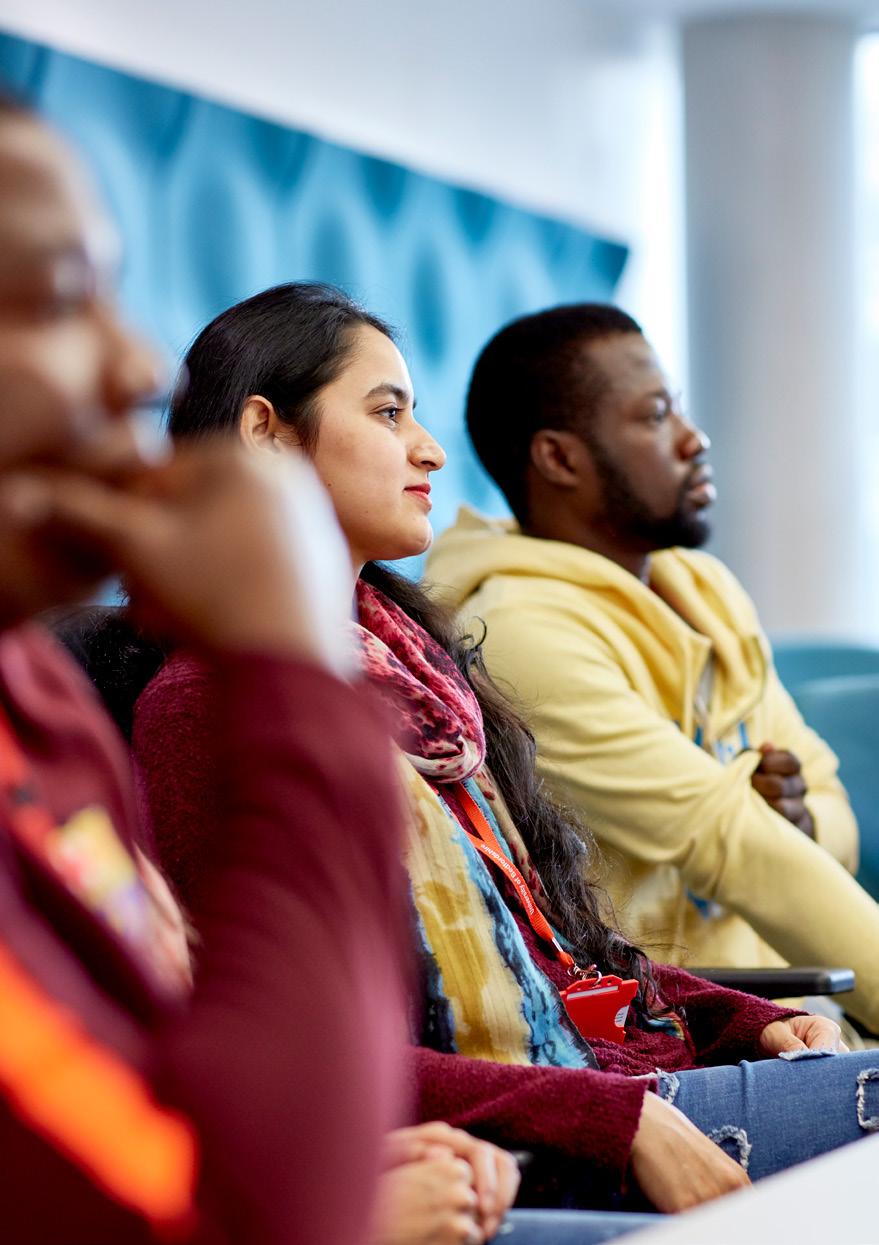
Day 1
pm
Meet the course team and get to know your way around the School
Meet in The Metro café for afternoon tea, board games and quizzes
A day in the life of being a student – what to expect
Day 2
am
Get the most from your virtual learning environment (BREO) where you will find information on your courses and assessments
Meet current students
Introduction to the Students’ Union and library services
pm First meeting with your personal academic tutor
Day 3 & 4 University organised event
Year 1 (Level 4)
Introduction to Counselling and Psychotherapy
Exploring the key theories and skills which are the foundation to psychology and your degree
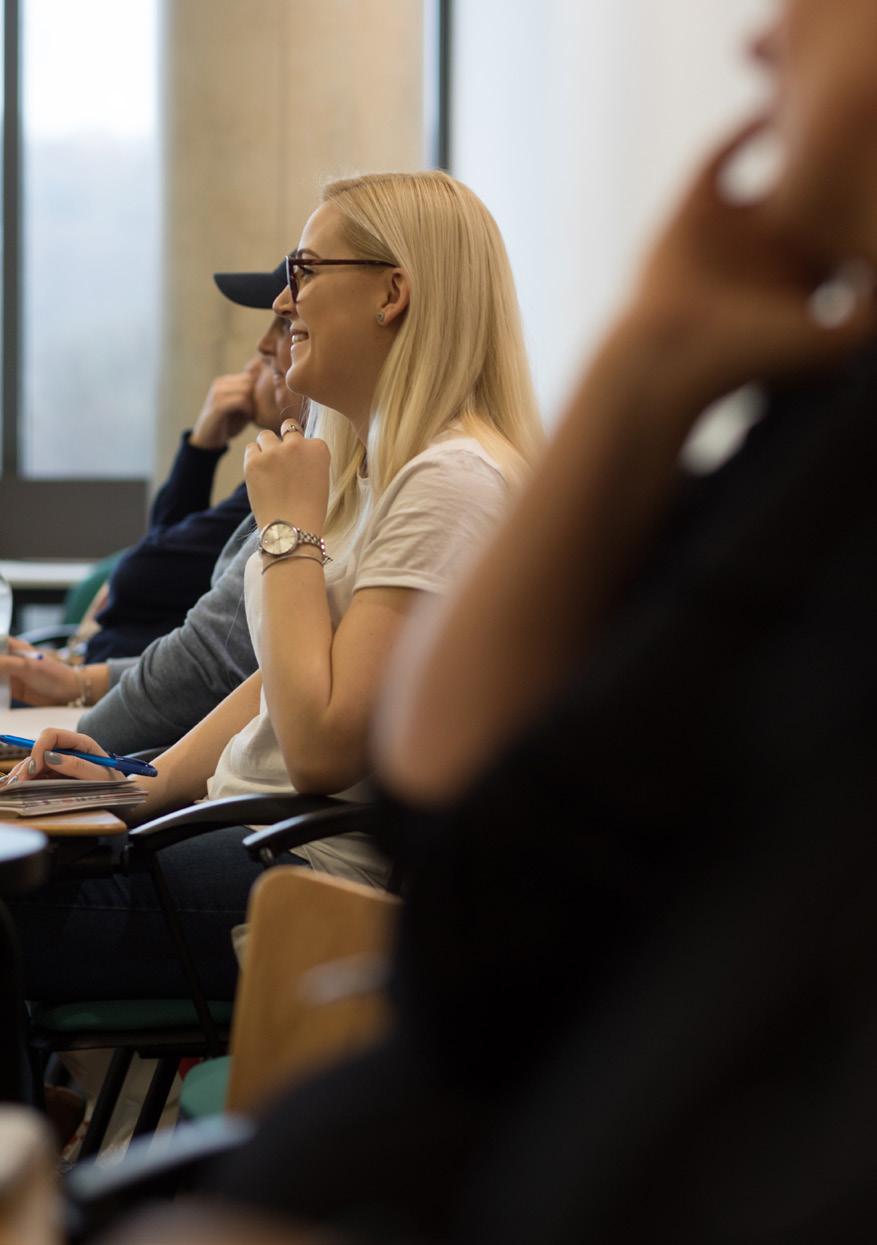
Introduction to undertaking research in psychology
How psychology relates to everyday life
The course assessments are closely aligned to the University of Bedfordshire’s teaching and learning strategy which includes:
• Assessments that embed sequential progression, so that you build on your knowledge and skills as you go through your degree
• Undertaking authentic pieces of work which assess knowledge and skills required in employment
• Fostering active learning and a learner-centred approach
• Enabling you to develop from the feedback you are given
A distinct feature of your course is the wide range of assessment types which include:
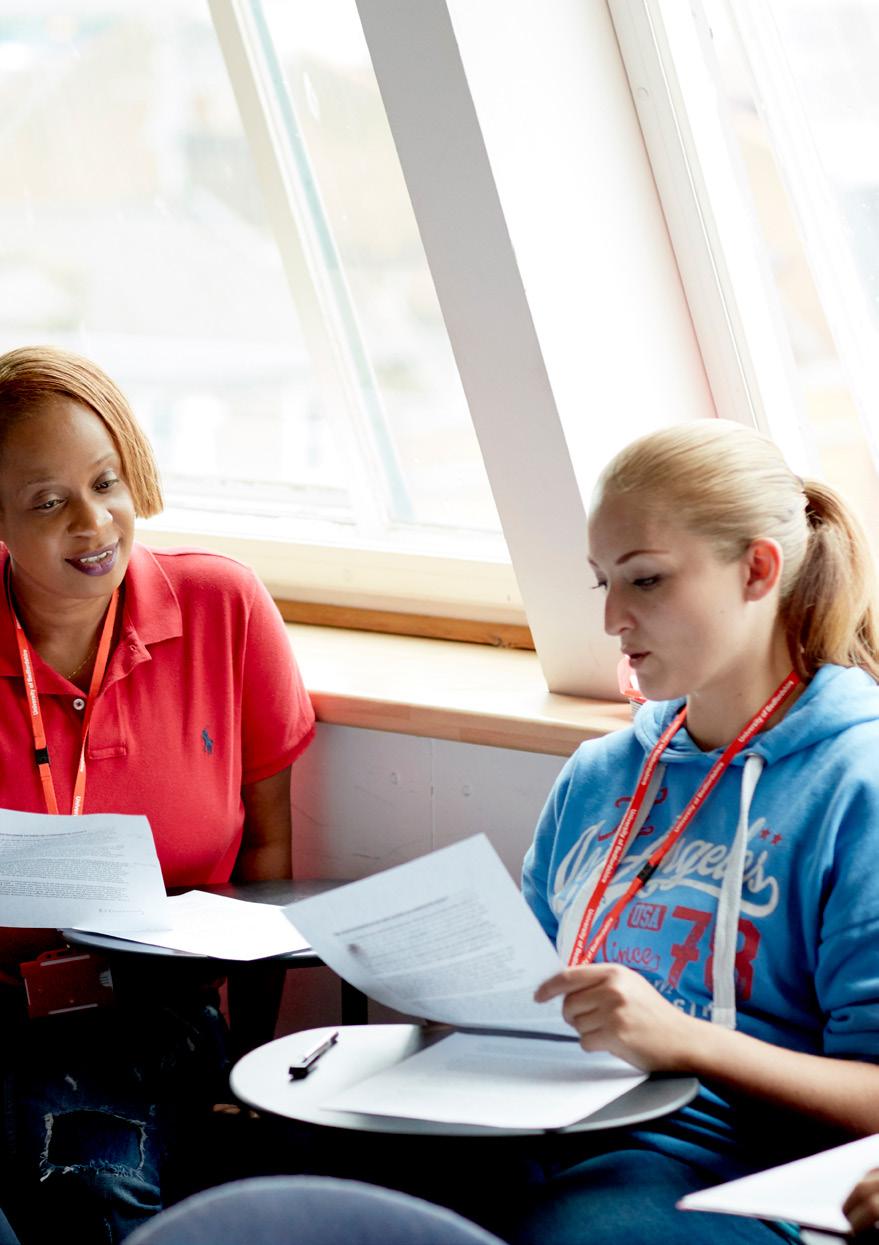
Reflective journal
Essays
Reports
Exams (multiple choice, short answer and long answer)
Presentations
Leaflets/posters
Creating digital outputs such as a webpage or podcast
Did you know that you can take a placement year after your second year of study?
Talyia undertook the BSc Psychology, Counselling and Therapies. Here is what she had to say about her placement year:
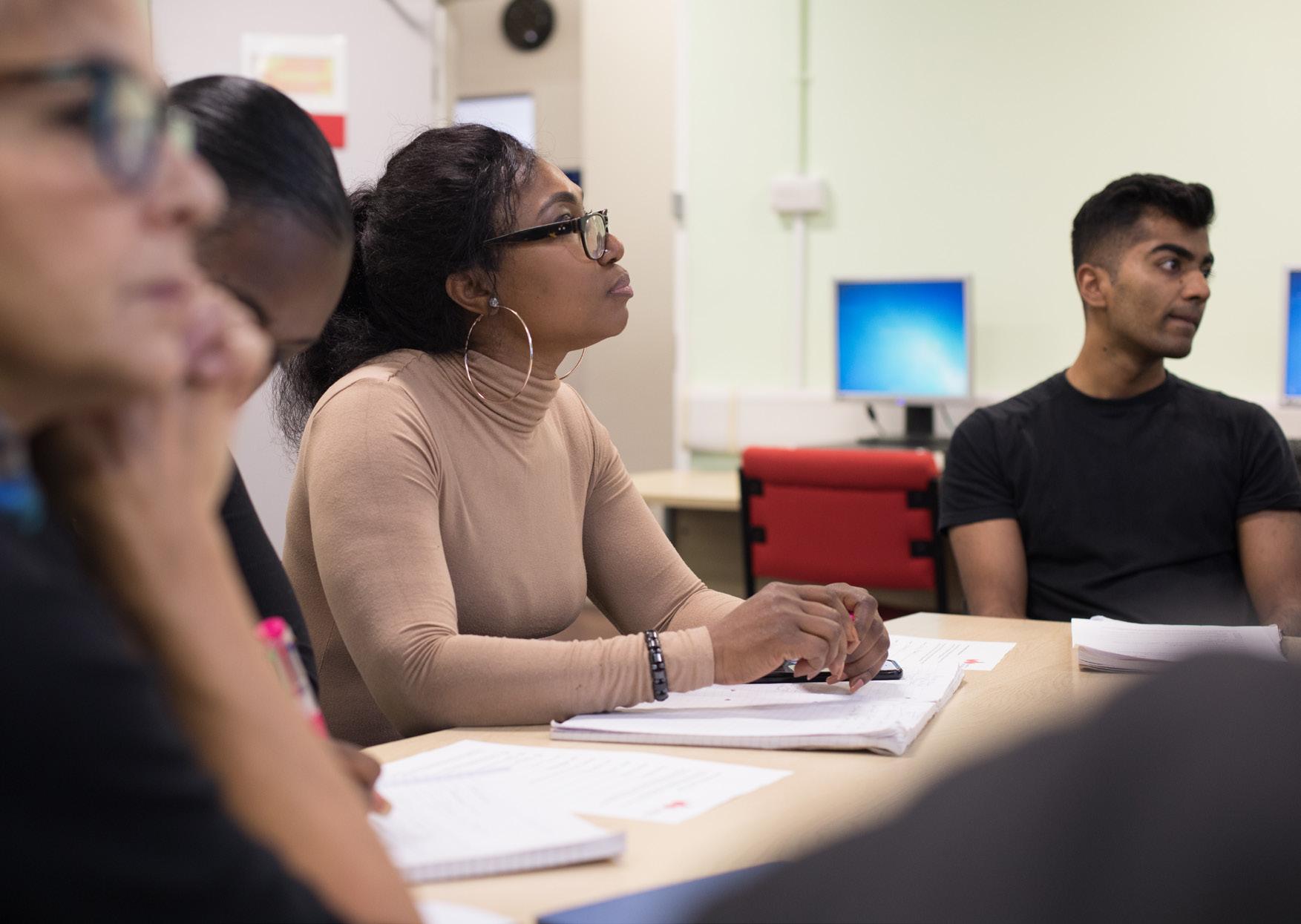
My experience at Bedfordshire Police was amazing. I produced work that was shared within and outside the force about serious subjects in relation to mental health. I was also given the opportunity to experience what it was like to work in other departments within the force. Additionally, I met some wonderful individuals along the way and worked with the best team who were very supportive. The placement year allowed me to learn what it was like to work in the real world and have an impact on people’s lives behind the scenes. At the same time, my confidence grew and I felt more assured with the direction I wanted to go career wise. I thoroughly enjoyed my experience and have since continued to be a volunteer. I truly recommend taking a placement year. It’s been the best experience and I never wanted it to end... or leave!
Talyia Hildebrand, BSc Psychology, Counselling and TherapiesOnce you have met the conditions of your offer, you will receive an email to complete your online registration. Keep an eye on your emails and junk box to ensure you don’t miss it!
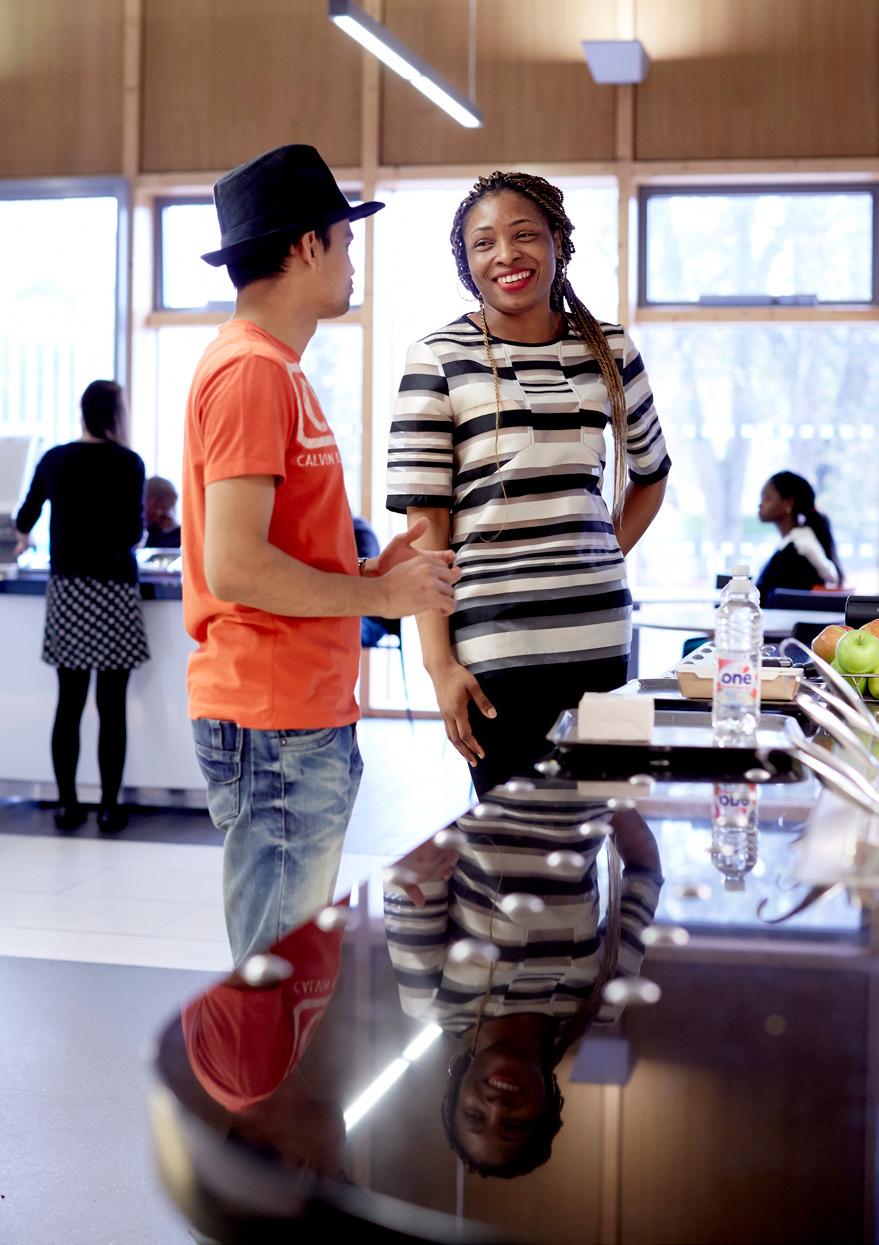
Enjoy this clip of our Senior Lecturer in Social Psychology, Joseph Adonu, where he explores the psychology of one of the hardest feelings to define: love.
• Does love at first sight actually exist?
Your Psychology degree is accredited by the British Psychology Society. Here is a link to an article about why we need to study psychology.
• Why do we need psychology? And what does psychology need?
(The British Psychological Society)
Take time to familiarise yourself with the layout of our campus and the names of buildings. This will help you get around with ease when you arrive.
• Luton campus
• Eating and drinking on-campus
Your scheduled classes for semester one typically run over three to four days for 11 weeks and are followed by end of semester assessments. Then we have a winter break, and you start semester two with new units for another 11 weeks.
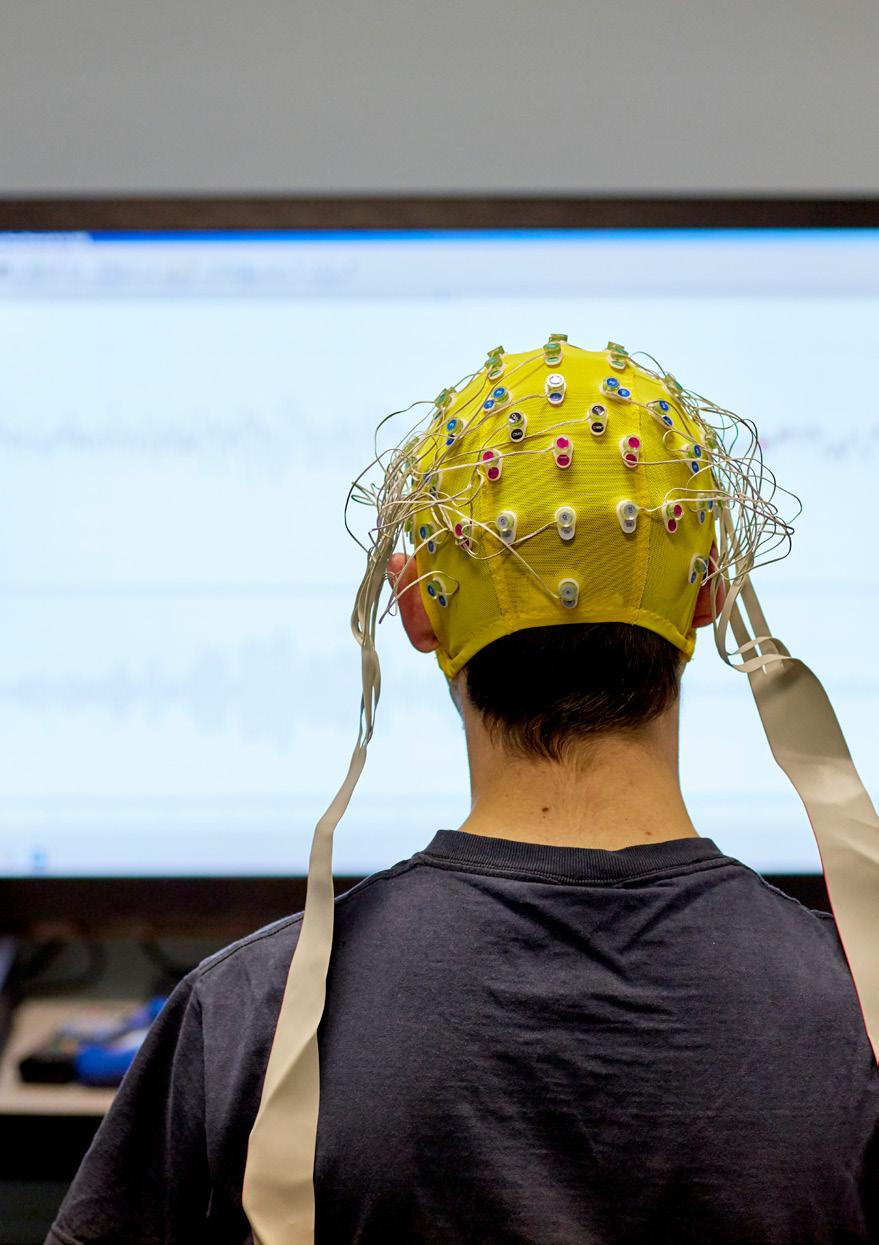
You will attend scheduled lectures which tend to be made up of a large group of students (up to 100) and are led by your lecturer. There are also smaller group seminars/practical sessions and tutorials, where you discuss aspects of what was covered in the lecture and learn new skills or work towards your assessments. Alongside this, you will have group and one-to-one sessions with your personal academic tutor. Guided learning is provided on our virtual learning environment (BREO).
To find out how to access your timetable go to beds.ac.uk/timetable
What happens if I miss class due to illness or have difficulties with childcare or travel?
We understand that everyone will face some difficulties now and again and we aim to be flexible. You are encouraged to discuss ongoing issues with your personal academic tutor or unit lead.
Who can help me with my assessments?
The academic team is always available to guide you with the theory based content and you can book a one-to-one tutorial with your unit lead. We also have regular support sessions within the School of Psychology. If you need more time to complete an assignment, please contact the Student Engagement and Mitigation team (SEAM) who deal with assessment extensions. Their email is: mitigation@beds.ac.uk
What support is available for students with a learning difference or disability?
Our Disabilities team support students with a range of disabilities including sensory and physical impairments, mental health difficulties, specific learning difficulties such as dyslexia, and medical conditions such as epilepsy, diabetes, sickle cell anaemia and arthritis. You may be eligible for a Learning and Teaching Agreement, where you can state any reasonable adjustments needed for classroom learning and examinations. You can email disability@beds.ac.uk for further information and advice.
Are there clubs and activities I can get involved with?
Yes! The Students’ Union can tell you everything you need to know about sports clubs, activities and events for all our students. You can even set up your own society! Contact Beds SU by emailing beds.su@beds.ac.uk
Within our School, the current psychology students and staff are planning social events including board games, crafts (such as knitting and crochet), exercise and psychology debates, so keep an eye out for information about these events.
What if I’m struggling with my mental health at university?
The University has a range of services offering specialist help. You can email mentalhealth@beds.ac.uk for new or ongoing mental health support needs. To access our counselling services, email counselling@beds.ac.uk
Is there any support to help me manage my finances?
Yes, we recognise the cost of living crisis is impacting significantly on students. Our dedicated Student Money Advice team offers confidential financial advice, information and support. They can advise you on a range of funding options such as grants, loans, bursaries and scholarships, as well as guiding you on the best way to manage your finances. You can contact them by emailing studentmoney@beds.ac.uk
You will learn a range of different approaches to counselling and therapeutic interventions. You will also develop core counselling skills and apply them in real life coaching practice as part of your course.
Our academics have contributed to the development of the discipline of psychology, with our research regularly cited in scientific papers and textbooks. We also write and publish works with our students. Many have published their research dissertations in respected scientific journals. You too could be part of the scholarly community!
Always remember, our team is here for you!
We know there’s a lot to take in when you start university. We’ll support you throughout, especially at the beginning. Some students adjust to university life more readily than others, and it can take time to feel at home, but this is normal and you’ll soon make friends. Remember, many of your fellow students will be feeling the same.
We are confident that you’ll love our friendly campus and everything the University of Bedfordshire has to offer.
Our teaching, research and study facilities are fantastic! We have batteries of psychological tests, eye tracking equipment, driving simulators, ECG equipment, a virtual reality suite and state-of-the-art STEM building. You could follow in the footsteps of many of our successful Psychology graduates. They have chosen a variety of career paths with some working in human resources, some running their own coaching consultancies, and some employed within the private and public sectors (including the NHS, police and Probation Service). Specific roles include health, counselling and forensic psychologists; assistant psychologists; research assistants; counsellors; psychotherapists; psychological well-being practitioners; mental health nurses; and academics.
Our Psychology Research Seminar Series introduces you to world-famous psychologists who visit our campus to discuss and celebrate their work.
Luton
University Square
Luton
Bedfordshire
United Kingdom
LU1 3JU
Bedford campus
Polhill Avenue
Bedford
Bedfordshire
United Kingdom
MK41 9EA
Aylesbury campus
Stoke Mandeville Hospital
Mandeville Road
Aylesbury
United Kingdom
HP21 8AL
Milton Keynes campus
2nd Floor Exchange House
Midsummer Boulevard
Milton Keynes
Buckinghamshire
United Kingdom
MK9 2EA
Putteridge Bury campus
Hitchin Road
Luton
Bedfordshire
United Kingdom
LU2 8LE